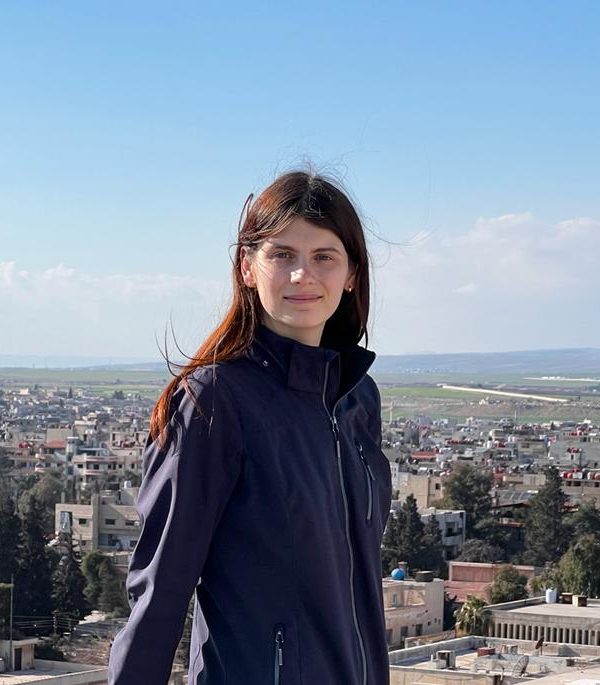
Northern Syria Crisis Update: December 2, 2024
Recent advances by the Turkey-backed Syrian National Army (SNA), which includes groups sanctioned by the United States for abuses against Kurds, Yezidis, and women, have caused a humanitarian crisis in northwest Syria and threaten to destabilize areas of the northeast under the control of the Democratic Autonomous Administration of North and East Syria (DAANES) and Syrian Democratic Forces (SDF).
The developments reinforce the centrality of political solutions to Syria’s crisis and Turkey’s transnational Kurdish conflict for security and stability in the Middle East — including an enduring defeat of ISIS and an end to malign Iranian and Russian influence.
As the only U.S. think tank with a presence on the ground in northern Syria, the Kurdish Peace Institute team is available to provide exclusive insight on the developing crisis and connect journalists and researchers to local sources. If you are interested in a briefing from our team, please reach out to us at info@kurdishpeace.org. Media requests can be directed to media@kurdishpeace.org.
Turkey-Backed Militias Endanger Displaced Kurds, Religious Minorities
Last night, Turkey-backed SNA militias exploited clashes between Hayat Tahrir al-Sham and Syrian regime forces to take control of areas around Shahba and Tal Rifaat that were previously under the control of the SDF and DAANES.
These regions housed tens of thousands of predominantly Kurdish IDPs who were forced out of neighboring Afrin when Turkey and the SNA invaded and occupied that region in 2018.
In Afrin, Turkish forces and Turkey-backed SNA militias have committed serious abuses against Kurds, Yezidis, and women, including indiscriminate attacks on civilian areas, looting of homes and property, torture, extrajudicial killings, disappearances, sexual and gender-based violence, and forced demographic change. Three SNA factions — Ahrar al Sharqiyah, the Hamza Division, and the Sultan Suleiman Shah Division — have been sanctioned by the U.S. for these abuses and for harboring former members of ISIS.
Today, the SDF and DAANES announced that they would evacuate the Shahba and Tal Rifaat regions and bring Afrin IDPs to DAANES territory in the northeast. Local media and human rights monitors have documented Turkey-backed SNA militias obstructing evacuation convoys and abducting fleeing IDPs. As of Monday afternoon local time, local sources are reporting that the first convoys have reached DAANES-held Tabqa.
Kurdish Local Democracy Under Threat in Aleppo
The status of Sheikh Maqsoud and Ashrafiyah, Kurdish neighborhoods in Aleppo that had been under the control of the Peoples’ Protection Units (YPG) and Women’s Protection Units (YPJ) since early in Syria’s war, is uncertain. HTS, which now controls the city, has reportedly requested that the YPG and YPJ withdraw from these neighborhoods. It is not yet certain whether and to what extent any withdrawal has taken place.
HTS has also issued a statement calling on Kurdish civilians to remain in Aleppo. The group’s history as an offshoot of Al Qaeda, oppression of ethnic and religious minorities and women in Idlib, and collaboration with Turkey-backed SNA groups leaves many Kurds suspicious of their intentions. Kurds also fear that HTS will not respect the democratic, pluralist, gender-equal civil administrations that they had established to govern Sheikh Maqsoud and Ashrafiyah and will impose fundamentalist rule in its place.
Erdogan’s Next Move
It is still unclear what impact these developments will have on Turkey’s approach to Syria and the Kurdish issue — including nascent efforts to return to a peace process with the Kurdistan Workers’ Party (PKK).
The presence of SDF forces west of the Euphrates has long been a sticking point for Ankara. A withdrawal from Shahba and Sheikh Maqsoud could satisfy some Turkish interests and make further Turkish-Kurdish negotiations easier. Conversely, some observers believe that this may not be enough. They warn that Turkey could take advantage of HTS and SNA advances to target the SDF in Manbij next.
That SDF forces and Kurdish communities have been allowed to peacefully withdraw back to DAANES territory further east, however, suggests that de-escalation may still be possible. One important condition for SDF and DAANES authorities in any peace effort is an end to violations against Kurdish civilians in occupied zones and, ultimately, the safe return of all displaced persons to their homes.
A successful peace process resulting in improved Turkish-Kurdish ties regionally could further challenge Iranian and Russian influence in the region. With these actors’ weaknesses now on full display, the international community may want to capitalize on it and support a Turkey-PKK settlement. Peace in Turkey would also ensure that the DAANES, the only authority in Syria to respect minority rights, women’s rights, and religious freedom, would be able to take part in a political solution to Syria’s crisis and would support the efforts of the U.S.-led Coalition to pursue a sustainable defeat of ISIS.
Many are waiting to see what Nationalist Action Party (MHP) leader Devlet Bahceli, who has become the face of the state’s outreach to the Kurdish movement, will say in parliamentary group speeches on Tuesday.
Last week, Bahceli called for pro-Kurdish Peoples’ Equality and Democracy (DEM) Party MPs to be allowed to meet with imprisoned PKK founder and leader Abdullah Ocalan, whom the Kurdish movement recognizes as its chief negotiator in any potential process. DEM Party co-chairs Tuncer Bakirhan and Tulay Hatimogullari subsequently put in a formal request for such a meeting. Turkey’s Justice Ministry has not yet approved or denied the request.
(Photo: Hawar News Agency)


